Syrian Urban Research Network
This workshop was organised at the Technische Universität Berlin in collaboration with DAAD. It gathered over 25 young students from Syria who were relocated to Germany, and whom research explored different urban topics within the Syrian context.
Background:
Since 2011, Syrian cities and urban areas are witnessing mass destruction due to the militarized conflict. Urbicide, which resonates to the shifting boundaries of territorial sovereignties, has not only damaged buildings and infrastructures, but has also changed the demographic structure of the population, introduced new local and external actors, affected tangible and intangible heritage, and produced a whole new set of spatial practices ranging from informality and encampment, to resistance, resilience and adaptive reuse. Amidst these turbulent processes and challenging situations, research stands as a key for understanding, reflecting and learning from this and other experiences. Foremost, it becomes a backdrop on which post-war narratives could be constructed. In response, the Habitat Unit (Chair of International Urbanism and Design) at the School of Architecture in the Technische Universität Berlin, with the support of the German Academic Exchange Service (DAAD)* & the German Ministry of Exterior, is organizing a workshop to initiate the Syrian Urban Research Network (SURN) which will take place on September, 12-13, 2016 at the TU Berlin, Germany. The workshop is a first step towards creating a collaborative platform amongst Syrian students in the diaspora, academics and experts working on topics regarding urban issues in and about Syria. Our approach builds on interdisciplinary discourses on topics related to: resources (water-, land-, heritage management), urban informality, coping mechanisms, resilience, adaptive reuse, civil society empowerment, post-war scenarios and reconstruction strategies.
Objectives and Expected Outcomes
The SURN workshop will explore the academic research related to current spatial dynamics and the urban future of Syria, and will discuss initiatives of civil society aiming to reconstruct damaged areas and to support the affected communities. Through understanding the current situation, we are aiming at arriving to common values regarding Syria’s urban future.
Knowing that a key challenge currently faced by researchers is how to conduct research on Syria from abroad, the main objective of the workshop is to connect students with researchers, experts and practitioners working on the field. The structure will combine presentations, panel discussions, interdisciplinary roundtables and thematic group work. Different lectures will be given by experts to draw on other positive and negative experiences of post-war reconstruction from cities like Berlin and Beirut. For that, visits to selected sites in Berlin will also take place.
The expected outcomes of the workshop are the creation of a network of academics working on post-war reconstruction, encouragement of academic collaboration, establishment of a platform of exchange for ideas related to the topic and forging a common ground for further initiatives.
-
FundingDAAD
-
InstitutionTechnische Universität Berlin
-
Year2016

-
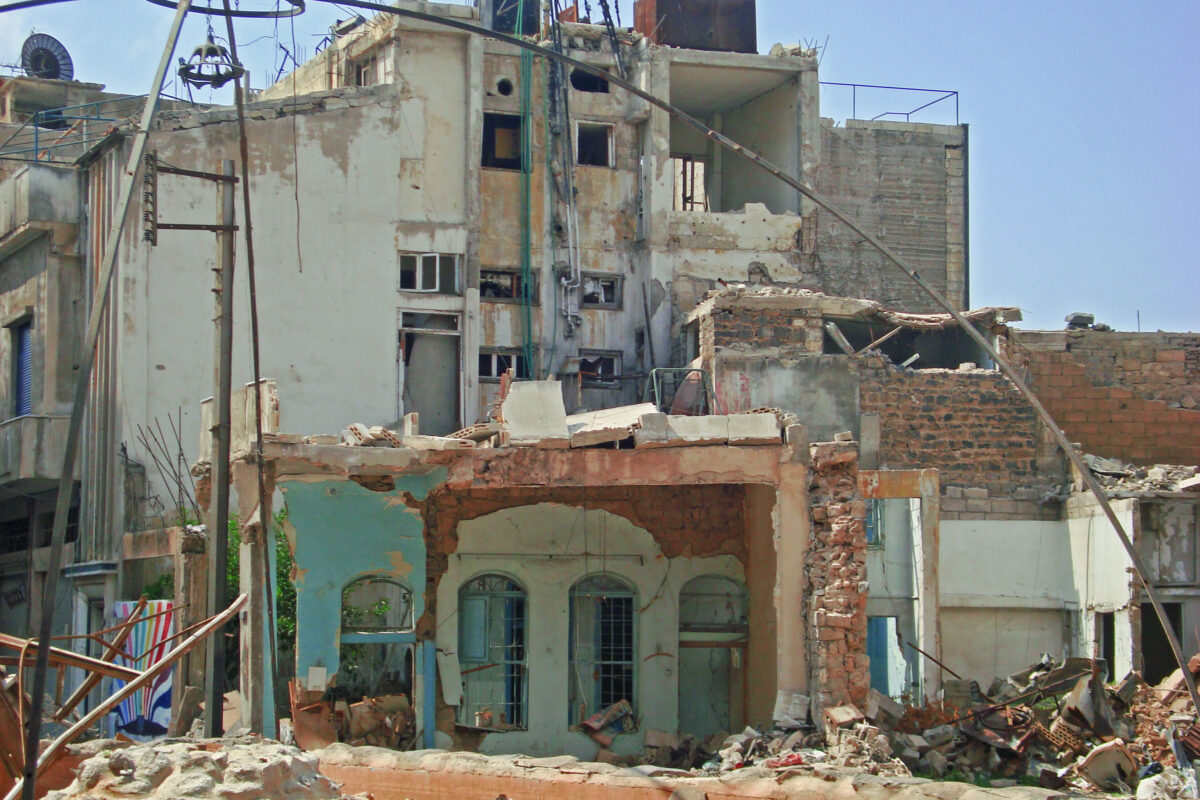 Impressions from the old city of Homs destroyed by the war (Courtesy: Dana Maatouk)
Impressions from the old city of Homs destroyed by the war (Courtesy: Dana Maatouk) -
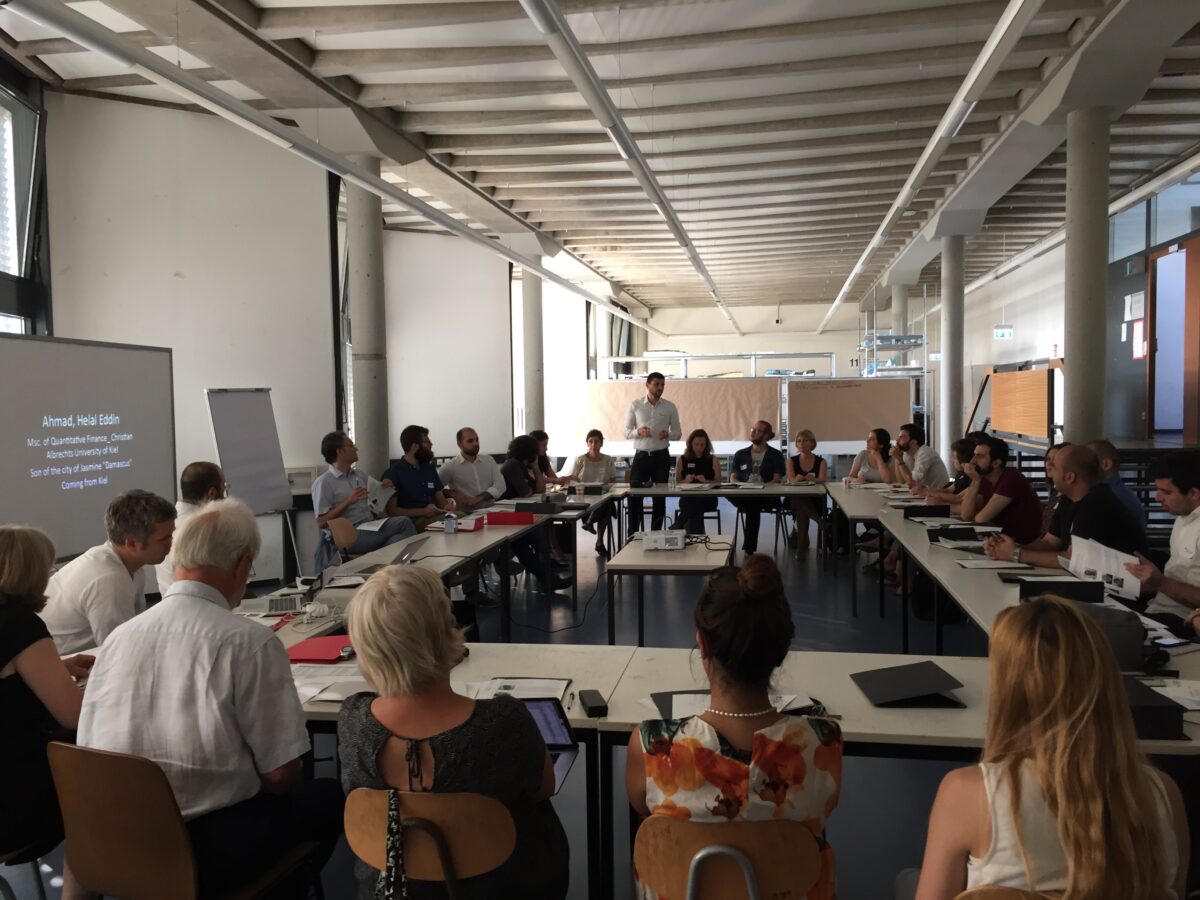 Impression from the workshop (Courtesy: Lea Ksayer)
Impression from the workshop (Courtesy: Lea Ksayer) -
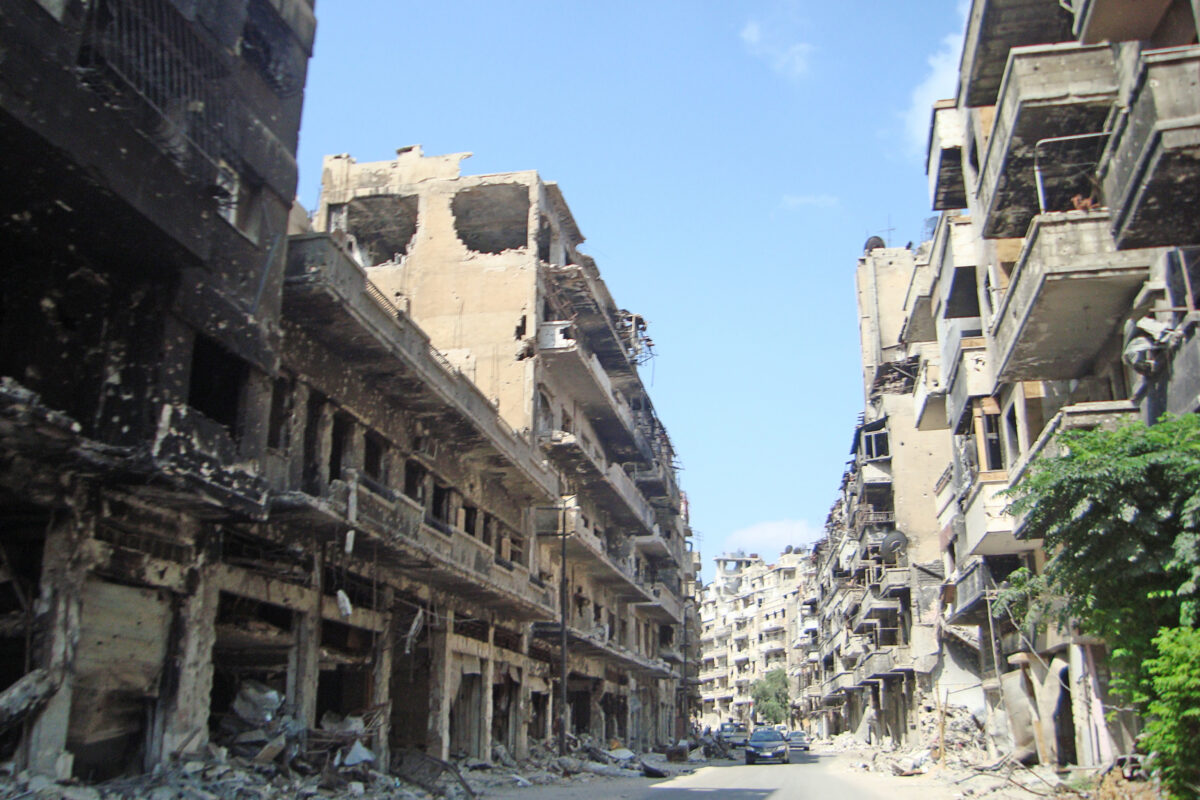 Many neighbourhoods have been entirely destroyed by the war apparatus (Courtesy: Dana Maatouk)
Many neighbourhoods have been entirely destroyed by the war apparatus (Courtesy: Dana Maatouk) -
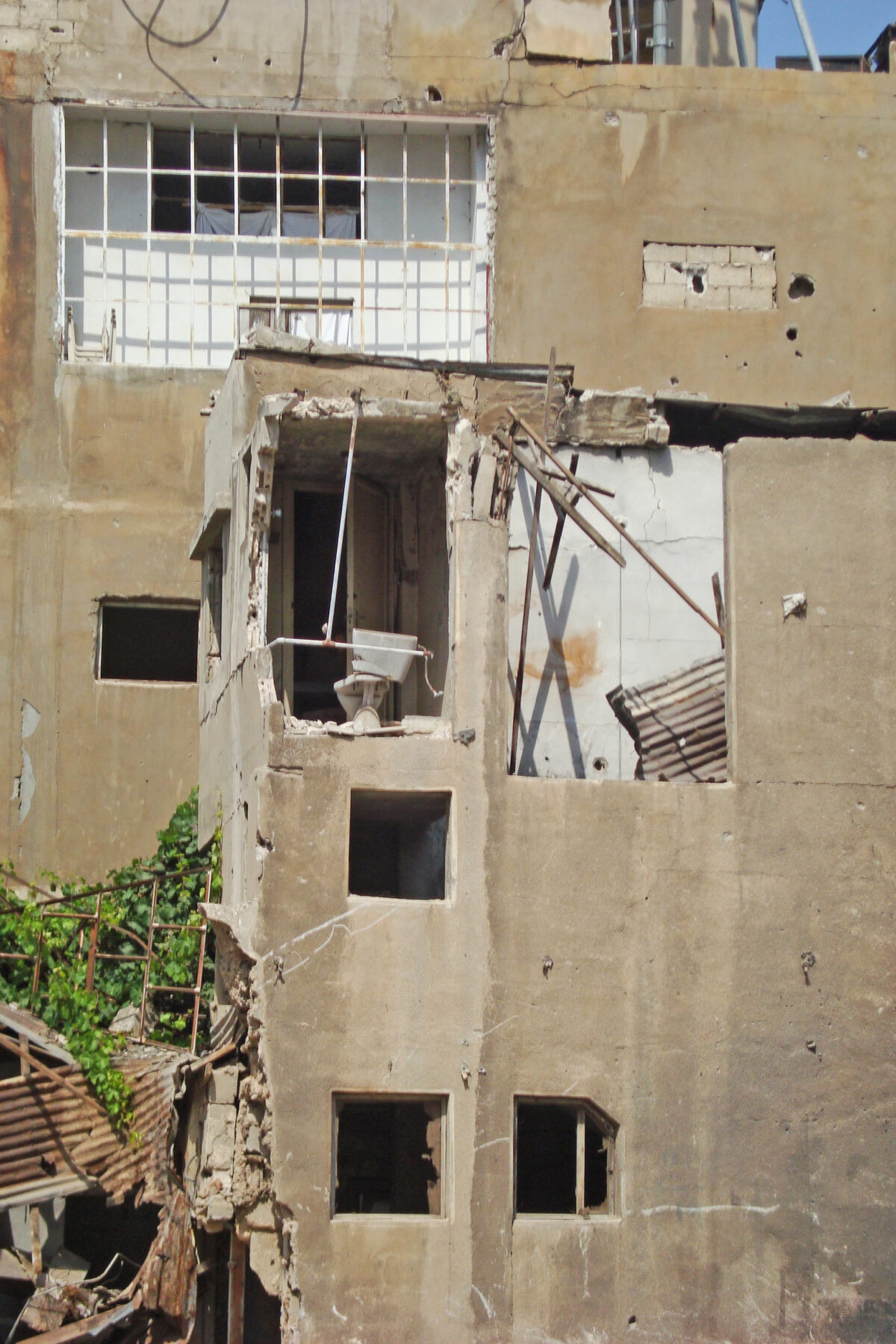 Damaged buildings and infrastructures in Homs city (Courtesy: Dana Maatouk)
Damaged buildings and infrastructures in Homs city (Courtesy: Dana Maatouk) -
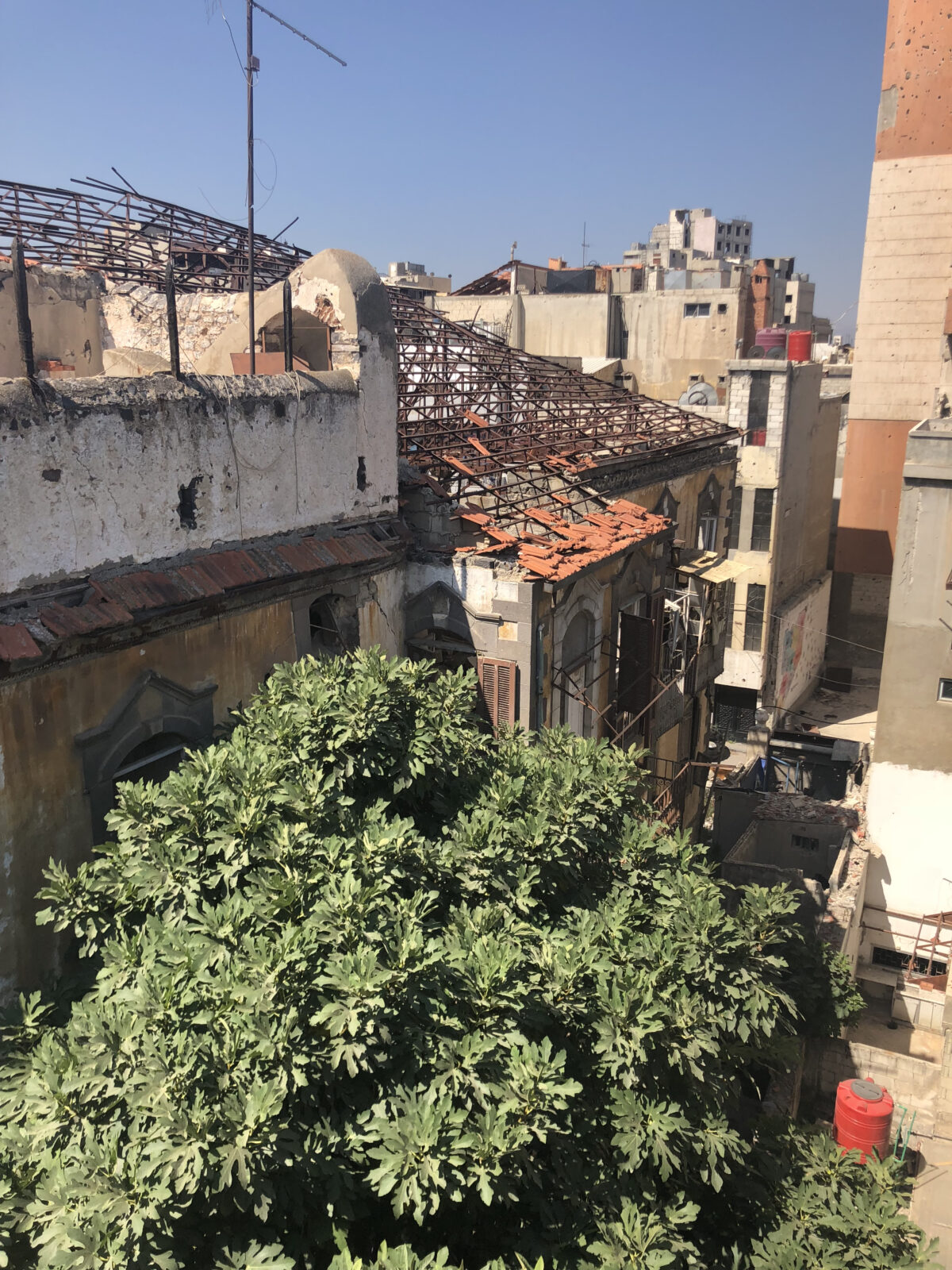 Naqrour palace in Hamdieyeh, Homs, partially destroyed (Courtesy: Dana Maatouk)
Naqrour palace in Hamdieyeh, Homs, partially destroyed (Courtesy: Dana Maatouk)